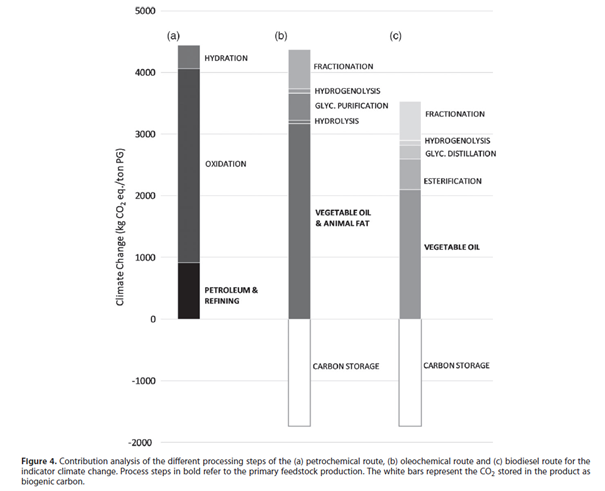
Looking after the environment is in Proviron’s DNA. Through innovations and continuous process improvements, we focus on new and greener solutions for our customers. In the Provifrost division, we also offer a range of smart and innovative solutions to improve the sustainability goals of our customers.
Monopropylene glycol (MPG) is a crucial component in aircraft de-icing fluids, with standardized concentrations of 80% for Type I and 50% for Type II or IV fluids. It replaced ethylene glycol in the mid-20th century due to its lower toxicity, making it safer for humans and animals. Since 2022, Proviron has sourced MPG from vegetable oils like rapeseed and soybean, shifting away from crude oil derivatives to support sustainability and reduce fossil fuel dependency.
The production of MPG begins with propylene oxide, derived from propylene – a byproduct of petroleum refining and natural gas processing. Through oxidation and hydration, propylene oxide is transformed into monopropylene glycol, a process that consumes large amounts of energy and emits greenhouse gases depending on the production methods and energy sources used.

Proviron collaborates with biobased MPG suppliers who conduct Life Cycle Assessments (LCA) using ISO 14067 standards to measure greenhouse gas emissions. These assessments are audited for accuracy, ensuring transparency in environmental impact reporting. Biogenic carbon from renewable feedstocks like rapeseed and soybean oil is considered carbon-neutral over time, as CO2 emissions are offset by CO2 absorption during plant growth, completing the carbon cycle loop.
The carbon footprint of MPG production is calculated using databases such as EcoInvent, taking account of production methods, energy sources, and process efficiency. This data provides region-specific insights into greenhouse gas emissions, influenced by energy mixes, production technologies, and transportation logistics.
Biogenic carbon stored in plants and trees is part of the natural carbon cycle, in contrast with fossil carbon which has been stored underground for millions of years. Using biogenic carbon from renewable feedstocks for bio-based MPG production ensures that CO2 released during combustion or processing is part of a closed carbon cycle, mitigating contributions to atmospheric CO2 concentrations and climate change.
Our website makes use of cookies and similar techniques to ensure you get the best experience.
Via our cookie policy we like to inform you. Please click OK to continue.